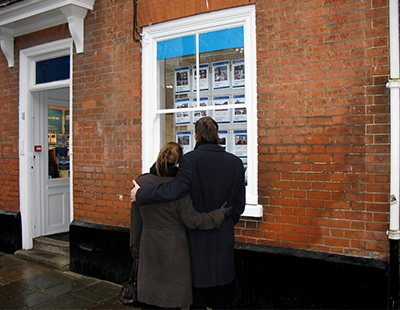For example, Knight Frank says transactions in prime central London dropped nine per cent in the year to the end of August, a fall which “highlights how uncertainty surrounding the final stages of Brexit talks are having an impact on the market.” In other words, falls in transactions can happen (as we know) even when stamp duty remains unchanged.
The effects of stamp duty outside prime London can appear even less clear cut.
The late 2014 Osborne reforms significantly cut duty for most buyers across the UK, yet transactions have declined slightly since that time. One may say they would have declined more without the reduced duty - perhaps that’s true. But there is no direct and guaranteed relationship between stamp duty and transaction volumes, otherwise deals would rise.
This is also the case with the additional homes stamp duty (the three per cent surcharge) introduced in April 2016. Although mortgage data shows this led to fewer buy to let purchases, it’s not been the same for holiday homes.
Recently released HMRC figures for 2017-18 show that additional homes contributed £4 billion, or 43 per cent of the total stamp duty take. If buy to let purchases did indeed go down, that means holiday home purchases rose despite the three per cent surcharge.
So while stamp duty may generate headlines and create ‘mood music’ about a housing market, there is no conclusive proof that by itself a fall in the tax generates a rise in sales.
Allied to this there is a feeling in the industry that UK transaction costs - including stamp duty of course, but also including about a dozen other fees from Land Registry registration and conveyancing to agents’ commission - are amongst the highest in the world.
The Global Property Guide is one of the few places where comparative costs are attempted - comparisons are notoriously difficult because there are so many tax variations, making it challenging to get an ‘average’ with which to compare one country to another.
Nonetheless, in the guide’s league table of costs, the UK comes 18th out of 42. Figures include registration costs, agents’ commission, legal fees and sales and transfer taxes.
Here are a few comparisons from Europe, all drawn up using data from late 2017. It’s important to remember that these are ‘round trip’ costs, of a sale AND a purchase by the same household, and they include all costs not just duty.
Belgium: transaction costs of 16.7% to 27.6% of a property’s sale price. (Registering the property with the government can alone cost up to 12.5%);
Russia: transaction costs of 20.7% to 25.5% of a property’s sale price. (Estate agents’ fees are relatively small part of this, only 2% to 5%);
Germany: 9.02% to 16.34% (with the biggest chunk being for registering the new owner);
UK: Stamp duty makes up a bigger chunk of transactions costs in the UK than in most countries, but because stamp duty can be zero for first time buyers or on relatively low-cost the total transaction costs can be very low - if you buy a cheap enough property, just 2.9% of the purchase price. But if you buy an expensive property, especially if it is an additional home, the ‘round trip’ transaction cost can be 17.06% - making the UK one of the dearest in the international league table;
Netherlands: 6.63% to 9.86% with buys paying most of the fees, and the agents’ commission being only 1% to 2%;
Switzerland: 3.48% to 8.93% and with agents’ fees rather than a registration charge or stamp duty being the largest element;
Denmark: Propping up the bottom of the Global Property Guide league table, this is very cheap with a ‘round trip’ costing 1.23% - 3.23%, including 0.5% to 2% for the agent.
All of this ‘proves’ very little and comparisons are broad-brush and involve many exceptions. But while we would all welcome lower stamp duty in the Budget in 10 day’s time, it wouldn’t necessarily trigger a major surge in the housing market that we would all like.
After all, some 94 per cent of buyers apparently benefitted from the reform of stamp duty in December 2014 - and since then transaction levels have remained muted, at best.
* This is the latest in a series of research pieces from Estate Agent Today.

















%20-%20IMAGE%20Client%20Accounting%20%E2%80%93%20what%20are%20your%20options.jpg)


%20A%20property%20tale%20for%20our%20times.png)








Join the conversation
Jump to latest comment and add your reply
Buy a £2M property and pay £213k to HMRC! This is the problem. For a developer where is that money made up? Get the seller to drop £200k or add the cost to the new dwellings and make the first time buyers pay? Someone has to pay it somewhere along the line. So when everyone is scratching their heads wondering why the market is slowing and why buyers can’t get on the ladder all you have to do is look at the bigger picture. Here’s an idea change UK residents (who already pay enough tax when your alive and dead) a standard rate and charge ALL overseas buyers the higher rate. If you want more homes for more buyers then make it financially easier for all involved as ultimately it’s the sellers who suffer followed by the buyers while HMRC fill their pockets.
Our general tax regime is NOT high in this country, that's one of the reasons why our public services are so stretched compared to other European countries. It is where that tax is collected from that is the problem. The reformed stamp duty regime has reduced the cost of moving house for most people in England and Wales and we must not forget that. It is London which has suffered most because the high value of all its properties puts it in the higher end bracket (with a few other hot spots are similarly affected). One can argue that one of the main points of this (Conservative not Labour) legislation was to temper the high end to make properties more affordable, but it is more complicated than that as those of us in the industry all know and it is time that London had its own stamp duty regime to take into account its special position as a revenue raising, global centre.
As a citizen of United Kingdom I do confirm this information. Also, I do agree with the tax system we've got here, as the rich must pay more for their properties. I was so influenced by the economy studies recently that I decided to write a paper about this on one of the most dearest websites I ever visited, also it's free and available for everyone interested
I am astonished that those on the agency side of the property business don't see that charging penal rates of SDLT at the top end has effectively topped the market off. There is no movement up to or down from the higher priced properties. This has effectively taken a huge sum of money out of the market and, of course changed peoples behaviour and aspirations. It is catastrophic and must be reversed. That supposed professionals are talking about other reasons for a very poor and deteriorating market is frankly pathetic and does demonstrate that intelligent levels in Agency are not as high as Stamp Duty!!!
It is only in London and one or two other hotspots where movement up and down has been affected, because 90% of the market elsewhere has seen a reduction in stamp duty rates across the board. As I said, the answer is to treat London. as a special case
Putting a roof over your head should be tax free. Help the property market!!
If you must tax property, then tax second properties and foreign purchasers.
But enough with the taxing of the ordinary citizen. It's now a UK cliche.
Instead, HMRC should make sure that companies taking revenue from UK citizens pay correct tax, the Government to attract foreign businesses into the UK, and to encourage domestic businesses. Tax will then flow.
Don't keep squeezing the populace because the Govt have run out of ideas.
Income tax, VAT, national insurance, fuel duty, stamp duty.....it is making UK life very tough for the less fortunate, while we constantly hear of more and more people with daft sums of money.
No. Transactions in England Ex-London (see chart in link below) are up 10% since 2014 so it is true to say that SDLT cuts encourage more transactions. Our analysis also shows there has been a £4.6bn Loss to the Economy through lost Taxes and business revenue. The case for cutting SDLT is abundantly clear! ... https://www.ludgroveproperty.com/intelligence/stamp-duty-4-6-billion-in-lost-tax-receipts
Please login to comment